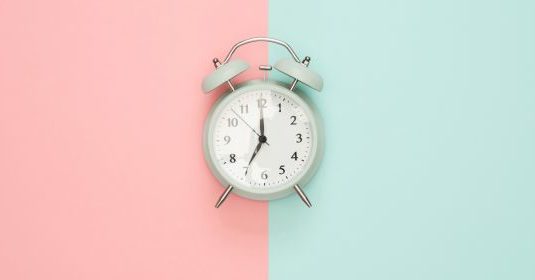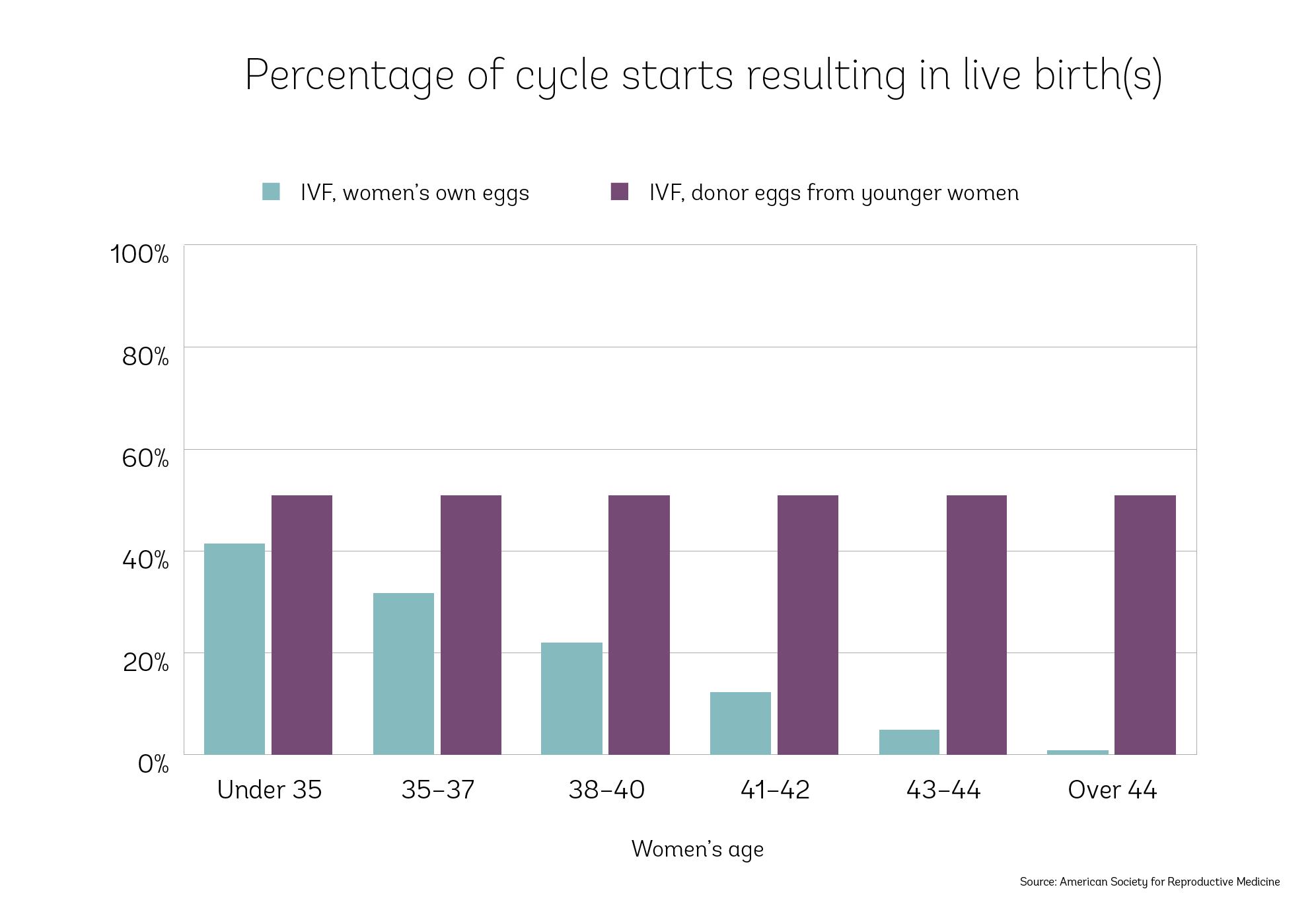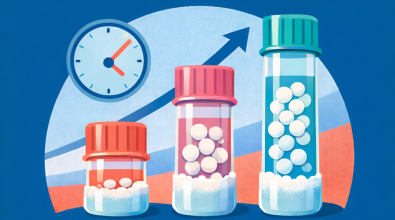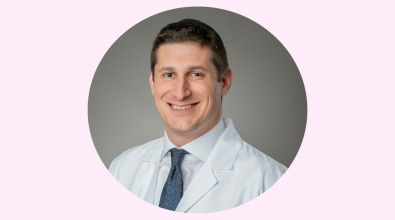
Kristen Mancinelli, MSPH, Director of Partnerships and Education
First, let’s acknowledge my clever pun. The age of the egg! Her time has come! We’ve entered a new era!
Okay. On to more serious business. The reason I’ve been thinking about the age of the egg is because, according to doctors, the age of the eggs a woman freezes is so important to her chances for pregnancy later on. Why? What’s so different about older eggs?
Contact Us to Chat with a Fertility Advisor
First, you probably know that a woman is born with all the eggs she’ll ever have, which is why the quantity of eggs declines over time (you lose one or more every month). That diminishing pool of eggs feels very worrying—you may even think that’s the biggest barrier to you eventually getting pregnant, if you want to.
And you’re right to be concerned: the number of eggs is important. But there’s something else that changes over time. An egg is a type of cell, and like all living things, cells age. When an egg is getting ready for ovulation, it goes through a process of division (meiosis), and as eggs age, they are more likely to collect errors in their DNA during that process. These errors, known as “chromosomal defects,” are problematic changes to the genetic material that tells the cell how to function. Older eggs are likely to have more defects than younger ones, and therefore have a harder time doing what they’re supposed to do (make a baby).
Why all this damage to the eggs? I mean, I eat organic food and go to the gym. I don’t smoke. I’m in good health! Why should I be worried about the health of my eggs?
The fact of the matter is that, prior to ovulation, your egg cells are pretty well tucked away inside your ovaries, unaffected by most of your dietary and lifestyle choices. (The exceptions are smoking and certain toxins and medications—this is precisely why women facing some cancer treatments are encouraged to freeze their eggs first.) So while it’s good news that a glass of wine or two won’t damage your fertility, the flip side is that a healthy lifestyle can’t really protect your eggs from the inevitable affects of age.
Most of the cells in your body “regenerate,” or get cleared out and replaced by younger, healthier ones. Sometimes we can see the regeneration happening, like with skin cells—it’s the reason your tan fades a week after your Cabo vacation. But the same thing happens deep inside your body. Red blood cells, for instance, get recycled every 3–4 months, and liver cells get replaced once every year or so. Anyone who’s ever broken a bone can tell you that even the cells in the human skeleton grow anew. You may be in your 20s, 30s, or 40s, but most of the physical stuff that makes up you is less than a decade old.
The one exception, of course, is your eggs. Those went with you to pre-school and they’ve been enduring the elements, so to speak, ever since.
So not only do you have fewer eggs as you get older—the ones you do have are more likely to have those pesky defects. That’s why the guidelines for how many eggs a woman should freeze are based on… ready for it? Yeah. Your age at the time of freezing.
It doesn’t matter if you look 22. Your eggs know how old you really are. Younger eggs are simply healthier than older ones, and healthier eggs lead more often to pregnancy.

We know we can’t make more eggs, and we can’t make old eggs young again. But we can freeze eggs in time. And this matters—a lot. According to the American Society for Reproductive Medicine, birth rates for women undergoing IVF declined about 10% every two years for women between the ages of 35 and 44, when they used their own eggs of the same age. In contrast, the birth rate was the same for all women, regardless of age, when they used young, donor eggs.
Like I said—it’s the age of the egg!
Questions? Tweet us @extendfertility.




